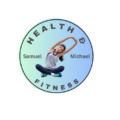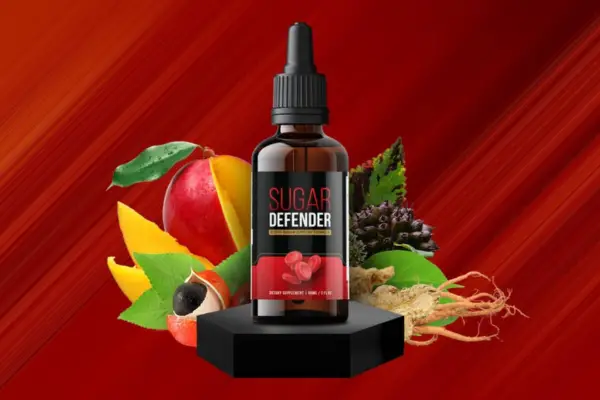Protect Your Sweetness with Sugar Defender!
Protect Your Sweetness with Sugar Defender! Are you sick of experiencing sugar crashes and rises in your blood pressure? Greetings from your new friend, the Sugar Defender! With the support of this ground-breaking vitamin, you may sustain stable blood sugar levels and consistent energy levels all day long.
Sugar Defender, a blend of natural substances with blood sugar-supporting qualities, is your go-to tool for combating sugar cravings and low energy. Even a small daily dosage can have a significant impact on your mood, assisting you in remaining attentive, focused, and prepared to face the challenges of the day.
Refrain from letting sugar rule your life. With Sugar Defender, take command and enjoy the liberation of healthy, balanced energy and vitality. Bid farewell to the sugar rush and welcome to a happier, healthier version of yourself!
Introduction
Protect Your Sweetness with Sugar Defender! Many of us in today’s hectic environment rely on quick and easy meals that are frequently high in sugar. Although sugar adds flavour to our favourite delicacies, consuming too much of it can be harmful to our health. Welcome to “Sugar Defender,” your one-stop resource for learning about sugar and cutting back on it for a better way of life.
What is Sugar?
One kind of carbohydrate that gives our bodies energy is sugar. It can take many different forms, such as:
The primary form of sugar in our blood is glucose.
Fruits and honey contain fructose.
Sucrose is a common table sugar that is made up of fructose and glucose.
Lactose can be found in dairy products, including milk.
While added sugars in processed foods can be hazardous, the natural sugars present in fruits and vegetables are necessary for a balanced diet.
Protect Your Sweetness with Sugar Defender!
The Hidden Dangers of Sugar
Consuming too much sugar can lead to several health problems, such as:
- Weight Gain: Sugary foods and drinks are high in calories and can lead to weight gain.
- Diabetes: Excessive sugar intake can cause insulin resistance, leading to Type 2 diabetes.
- Heart Disease: High sugar diets are linked to increased risk of heart disease.
- Tooth Decay: Sugar is a leading cause of cavities and tooth decay.
- Energy Crashes: Sugar can cause rapid spikes and drops in blood sugar levels, leading to energy crashes and fatigue.
Protect Your Sweetness with Sugar Defender!
How Much Sugar is Too Much?
Adults and children should limit their daily consumption of added sugars to less than 10% of their overall energy intake, according to recommendations from the World Health Organization (WHO). This means that an adult should not consume more added sugar than 50 grammes, or around 12 teaspoons, each day.
Protect Your Sweetness with Sugar Defender!
Identifying Hidden Sugars
Even meals and beverages that don’t taste sweet can have hidden sugars in them. These are a few typical sources:
- Soft drinks and fruit juices are often loaded with added sugars.
- Sauces and Dressings: Ketchup, barbecue sauce, and salad dressings can have high sugar content.
- Breads and Cereals: Some breads, breakfast cereals, and granola bars are surprisingly high in sugar.
- Dairy Products: Flavored yogurts and milk can contain added sugars.
Look for phrases like high fructose corn syrup, cane sugar, molasses, honey, and agave nectar in the ingredients list to identify hidden sugars.
Protect Your Sweetness with Sugar Defender!
Tips to Reduce Sugar Intake
While cutting back on sugar may seem difficult, little adjustments can have a significant impact. The following advice can assist you in becoming a Sugar Defender:
- Read Labels: Always check the nutrition labels for sugar content. Look for products with low or no added sugars.
- Choose Whole Foods: Opt for whole fruits, vegetables, and grains instead of processed foods.
- Cook at Home: Preparing your meals allows you to control the ingredients and reduce added sugars.
- Drink Water: Replace sugary drinks with water, herbal teas, or sparkling water with a splash of lemon.
- Reduce Sweet Snacks: Cut back on candies, pastries, and sugary snacks. Choose nuts, seeds, or fruit instead.
- Watch Portion Sizes: If you do indulge in a sugary treat, keep the portion size small.
- Use Natural Sweeteners: If you need to sweeten foods, try using natural sweeteners like stevia or monk fruit, which have little to no calories.
Benefits of Reducing Sugar
Cutting down on sugar can have numerous positive effects on your health and well-being:
- Weight Loss: Lowering sugar intake can help you lose weight and maintain a healthy weight.
- Better Blood Sugar Control: Reducing sugar can stabilize blood sugar levels, reducing the risk of diabetes.
- Improved Heart Health: A low-sugar diet can lower your risk of heart disease and high blood pressure.
- Enhanced Energy Levels: Without sugar crashes, you’ll have more consistent energy throughout the day.
- Healthier Teeth: Less sugar means fewer cavities and better oral health.
Success Stories
Many have successfully cut back on sugar and seen notable changes in their health. Here are a few motivational tales:
- Jane’s Journey: Jane, a 35-year-old mother, decided to cut out sugary drinks and snacks. Within six months, she lost 15 pounds, felt more energetic, and noticed her skin was clearer.
- Tom’s Transformation: Tom, a 50-year-old office worker, reduced his sugar intake by cooking at home and choosing whole foods. He managed to lower his blood pressure and cholesterol levels, and he felt more focused and productive at work.
Conclusion
A Sugar Defender is someone who makes deliberate decisions to enhance their overall health and wellbeing. Your quality of life can be greatly improved by discovering hidden sugars, recognising the risks associated with an excessive sugar intake, and making small dietary adjustments.
Remember that achieving a healthy balance is more important than totally cutting out sweets. Big improvements can come from little steps. Become a Sugar Defender today and take charge of your health!
Protect Your Sweetness with Sugar Defender!






Pingback: Heart Attack Prevention Top Tips for Heart Attack Prevention